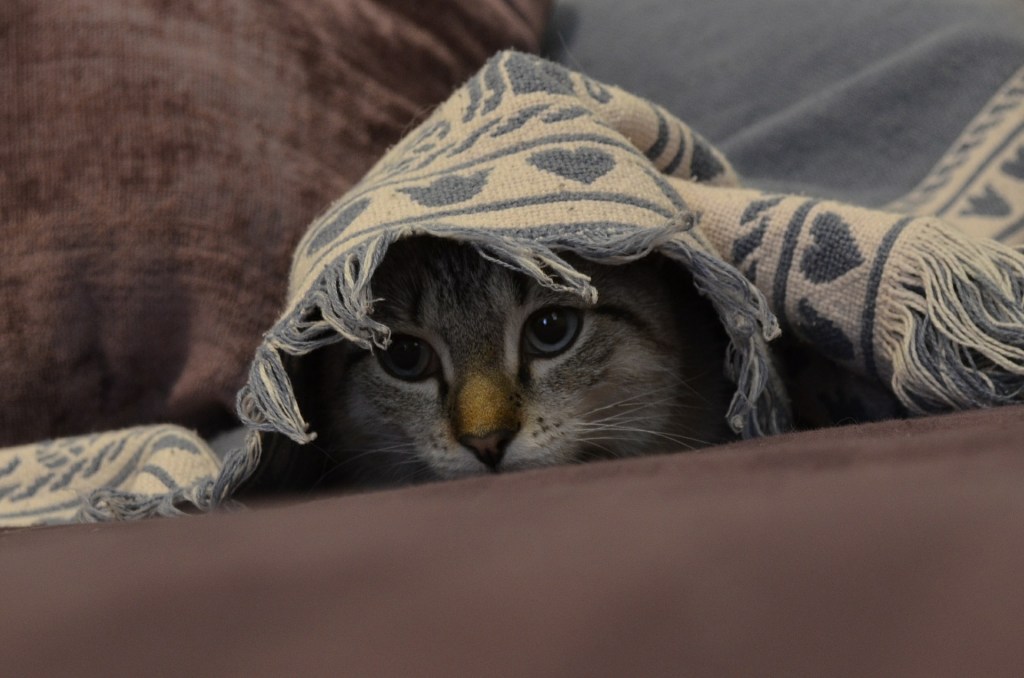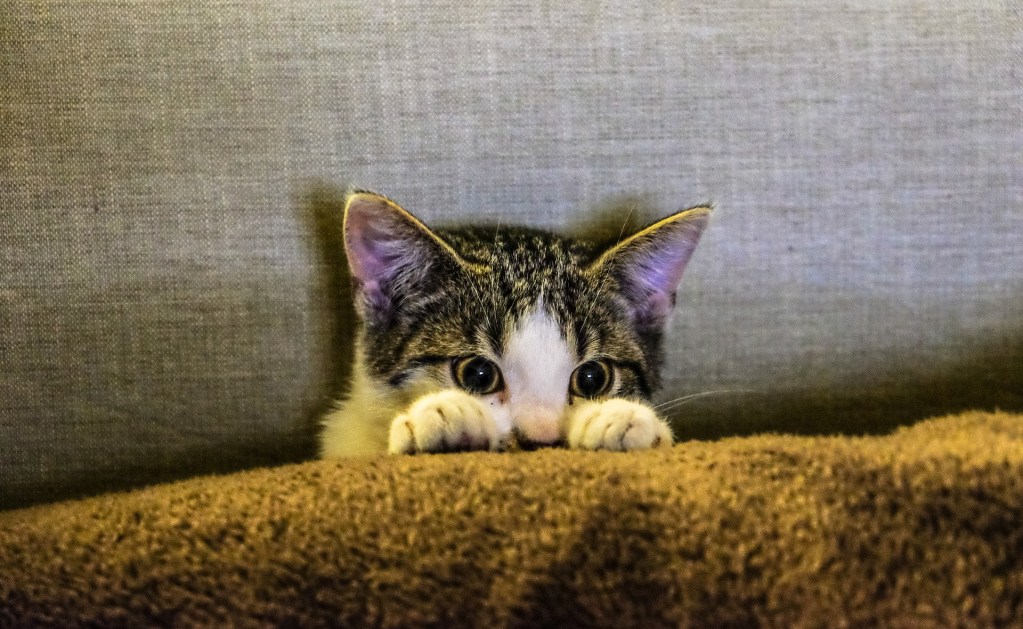Chances are that during a thunderstorm, a dog will be anxious and upset. But are cats scared of thunderstorms? Your cat won’t make a noise like some dogs do during a storm, and probably won’t tremble and cling to your side until the storm is over. But that doesn’t mean your feline friend isn’t afraid of the storm. If your cat is anxious about thunder and lightning, there are steps you can take to reassure and help your kitty to relax, even a little, while you wait for the storm to pass.
Do thunderstorms bother cats?
Are cats scared of thunder? In many cases, yes. According to Fear Free Happy Homes, cats don’t always appreciate the lightning as well as the thunder that comes with storms. Cats may react to the pressure changes and electrical discharges that occur in a storm. The loud sounds of wind and rain can also unsettle a cat.

Are cats okay with thunder and lightning?
Tipp City Veterinary Hospital notes that thunderstorms can be very unsettling to cats. A cat may be as upset as a dog during a thunderstorm but show it differently.
Dogs tend to bark and whine during thunderstorms, but cats may have more subtle reactions to thunder and lightning. Cats might become increasingly clingy or restless, and some cats may pace. It’s also possible that your cat will simply hide until the storm is over, and unless you see him go into hiding, you might not be aware that anything is wrong.

How can you calm a cat during a thunderstorm?
- To help keep your cat calm in a storm, make sure your cat is indoors when the storm arrives. You don’t want your cat stuck outdoors in a storm, especially if you’re in an area where there are tornadoes and you might need to get yourself and your cat to safety.
- If your cat typically gets anxious, check to make sure your nervous energy isn’t contributing to the problem. Cats often pick up on our energy, so focus on keeping calm. If you need to prepare for a storm, including closing windows and bringing yard furniture indoors, do it early on so you won’t be rushing around at the last minute.
- Consider an anxiety aid. You can try using Rescue Remedy on your cat. Rescue Remedy is designed to help both humans and pets cope with fear, and the cat version is made without alcohol. It’s easy to use; just put a drop on your cat’s head.
- You can also support your cat with a calming wrap, like a Thundershirt. Thundershirts can help pets feel safe and secure, but make sure you try one out before a storm so you’re ready to put it on your cat quickly.
- Allow your cat to hide if they want to. This is your cat’s way of keeping safe. They might want to hide in a closet or under a bed, while some cats prefer a basement, where the sound of a storm is often dulled. Make sure to give your cat access to these spaces during a storm.
- Some cats will try to cuddle or will look to you for reassurance. Be sure to give your cat that reassurance. He might decide that he’s the safest right next to you throughout the storm. If that’s the case, settle down with a book, pat your cat gently, and wait out the storm together.
Storms generally aren’t fun for humans or pets, but you can help your cat to get through them. Cats react differently to storms, and your cat might need different types of support than other cats do.
One of the best ways to ensure you’re giving your cat the support needed is to watch how he’s trying to navigate the storm. Some cats may take off and hide alone, while others tend to be more social and needy when they’re scared. The more you know about your cat’s typical behavior and body language, the better you’ll be able to tell how he’s feeling. It might take some trial and error before you figure out what your cat needs most, but with a little patience and effort, you can make thunderstorms easier for him.
Editors' Recommendations
- Wondering why cats chirp? Fascinating reasons why your cat chirps at birds (and you)
- How to cat-proof your balcony before the unthinkable happens
- There’s a totally normal reason cats throw up after eating grass – here’s why
- When do kittens’ eyes change colors? The answer is so cool – here’s what to know
- Your cat trilling is actually a good thing – here’s why



